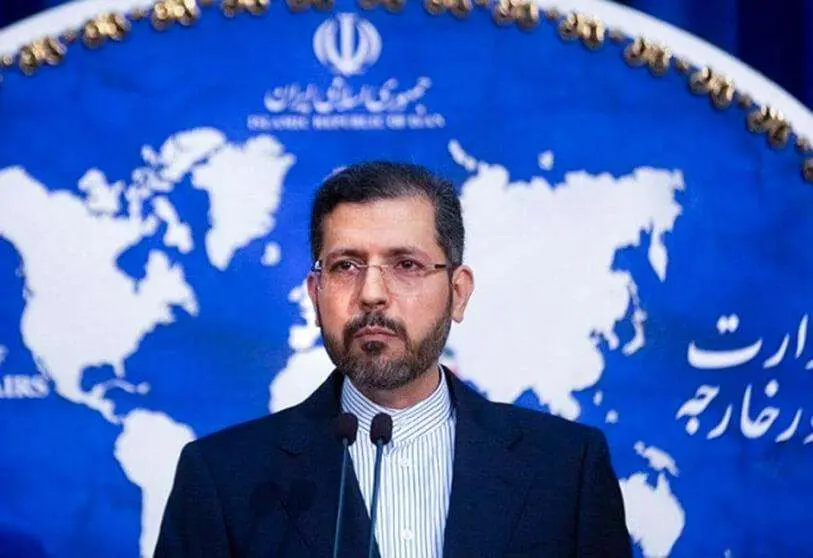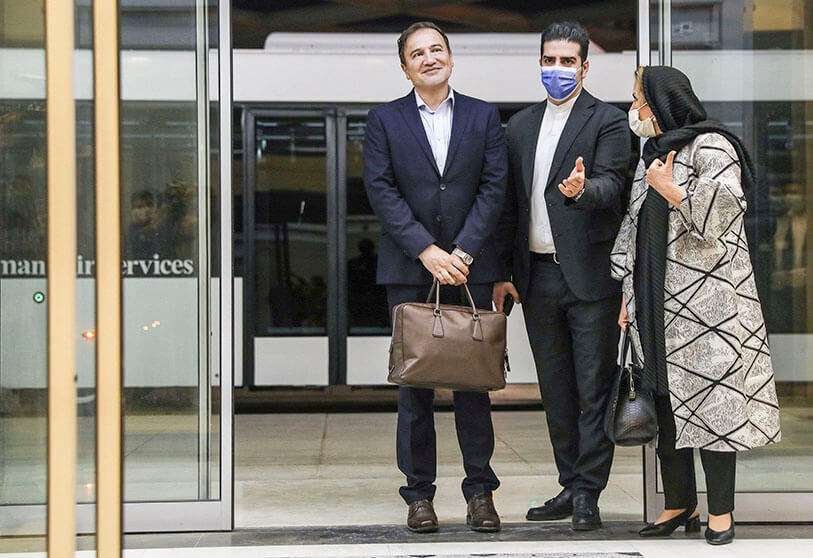Iran and US negotiate prisoner exchange

As the months go by, it seems that the US and Iran are getting closer and closer to reaching a common ground. While the return to the 2015 nuclear deal has been dragging on since April, the mistrust between Washington and Tehran is a difficult obstacle to overcome, with neither country willing to make the first move, and negotiations are at an impasse despite the optimism that the signatories of the deal are trying to show. However, in parallel to the Vienna talks, US and Iranian delegations are holding informal talks on prisoner exchanges.
US envoy for Iran Robert Malley said that President Joe Biden insists on the release of all Americans and will not accept "partial agreements". Malley called the release of Americans imprisoned in the Islamic Republic a "priority," adding that "some progress has been made" in negotiations with Iran, NBC News reported.

Asked about Malley's remarks, Iranian government spokesman Ali Rabiei confirmed these talks, adding that Tehran is demanding the release of all Iranian prisoners, not just those held in the US. Iran "is willing to exchange all political prisoners in exchange for the release of all Iranian prisoners around the world," he said in a televised press conference. These include those "who have been detained on US orders" or at Washington's request, he added, saying that "negotiations on this issue are currently underway".
Meanwhile, Iranian foreign ministry spokesman Saed Khatibzade said that Foreign Minister Mohamad Javad Zarif had "presented a plan to exchange all Iranian and American prisoners," according to the official IRNA news agency. "The Biden administration also addressed this issue from the first day" in office, he added.

Former US President Donald Trump decided to unilaterally pull out of the nuclear deal in 2018 and reimpose economic sanctions on the Islamic Republic, opting for a "policy of suffocation". Iran, for its part, has been more steadily opting out of the nuclear deal as a method of pressuring the US to lift economic sanctions on the Persian country, but so far the US seems unwilling to budge.
However, prisoner exchanges between Iran and the US are not unusual and in recent years both countries have sought the release of their nationals detained in the other country. However, the issue has become highly sensitive since Washington has been trying to resume dialogue with Tehran to salvage the 2015 nuclear deal, which originally included prisoner exchanges.

Iran is holding dozens of foreigners or Iranians with dual citizenship, mainly accused of espionage, who are often used as leverage. As for Iranians detained in the US or other countries, they are generally accused of violating sanctions that Washington imposed on Tehran in 2018 after it unilaterally withdrew from the nuclear deal.
In December 2019, Tehran and Washington conducted a prisoner swap, following the release of US researcher Xiyue Wang, arrested in 2016 for espionage, and Iranian scientist Masud Soleimaní, arrested in 2018 for attempting to export biological material to Iran. Michael White, a US Navy veteran arrested in Iran in 2018 for espionage, and Iranian-American doctor Mayid Taheri, convicted in the US of violating sanctions against the Islamic Republic, were released in 2020 in a rare case of cooperation between the two nations.

But any movement between the two countries is a particularly sensitive issue. A few months ago, reports surfaced of an alleged deal for the Islamic Republic to release US and British prisoners in exchange for billions of dollars for Tehran. But Joe Biden's administration denied this hours later, claiming that no agreement had been reached on the release of US and British prisoners in exchange for billions of dollars in oil resources, currently blocked by nuclear sanctions. Allegedly, the plan would focus on unlocking $7 billion of Tehran's oil funds, frozen by US and other sanctions over its nuclear programme, in exchange for handing over the detainees.








